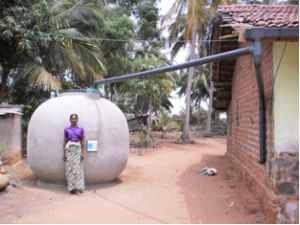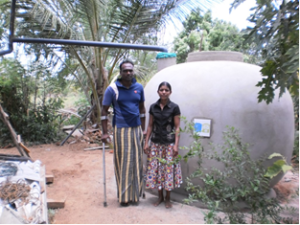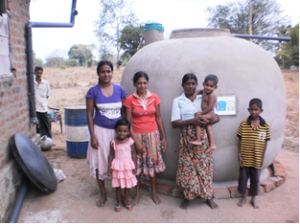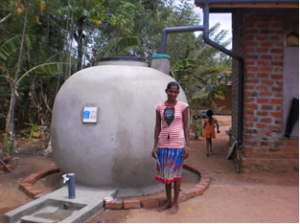Install 15 Rain water tanks of 8000 liters at Konakubukwewa Village in Anuradhapura district in Sri Lanka
| Project | Install 15 Rain water tanks of 8000 liters at Konakubukwewa Village in Anuradhapura district in Sri Lanka | ||||||||
| Project Areas | Konakubukwewa Divisional Secretariat in Anuradhapura District in the North Central Province of Sri Lanka | ||||||||
| Duration | May 2012 – 2013 | ||||||||
| Funded by | Japan Water Forum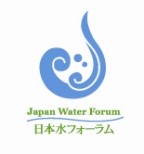 |
||||||||
| Project Cost | $ 10,185 (contributions - Japan Water Forum $ 8,000 and the Community & LRWHF $ 2,185) | ||||||||
| Project Objectives |
|
||||||||
| Outputs of the Project |
|
||||||||
| Activities conducted (as at March 2013) | 1. Creating awareness on rain water harvesting technologies Awareness program was held to school children at A. Konakubuk wawe School. Presentation was made on need of rain water harvesting, technology and the benefits of rain water harvesting. A small video on water and rain water harvesting was also shown. It was attended by over 40 students. 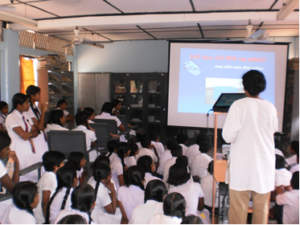 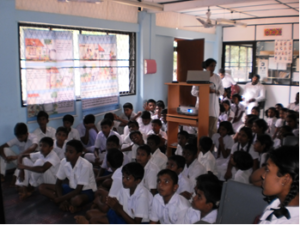 |
||||||||
| 2. Select households to install the RWH system Households were selected with the support Grama Niladari (Village Level Administrator). Request was received from 25 households, a survey was conducted of households to collect information on demographical, social -economic status, water scarcity (distance to drinking water source), number of children and reason for requesting a rain water harvesting system. 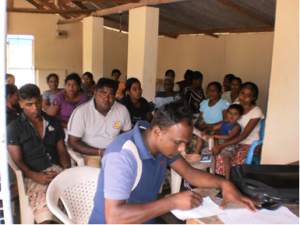 |
|||||||||
| 3. Install 15 number roof rain water harvesting tanks of 8000 liter capacity Fifteen 8000 liter Ferro cement tanks with gutters, first flush systems were installed in the selected households. Two of the initial selected household’s declined therefore 2 new beneficiaries were selected. Beneficiaries supported the installation by providing labour support during construction, provide meals and accommodation for masons and valance board for the gutters.
|
|||||||||
| 4. Repair of Existing tank The 3 rain water harvesting system in the school was repaired following a request from the principal, with fixing the gutters, lids and outlet tap. There was also a request from a another householder elderly lady who has received a rain water tank from previous project, but it was not been used since some components were broken. She asked for some assistance to have it repaired since she was living on her own and did not have the means and know how to get it repaired. LRWHF repaired the out let tap and first flush system in her house. 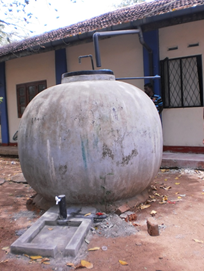 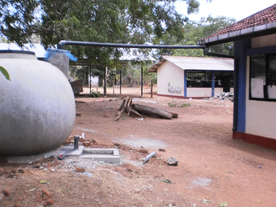 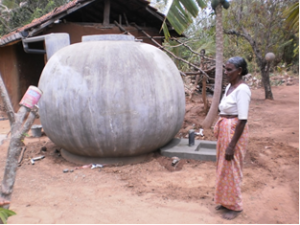 |
|||||||||
| 5. Training on operating and maintaining of rain water tanks A training program was held on operation and maintenance of rain water harvesting system to the 15 beneficiary households in Konakubukwewa division. 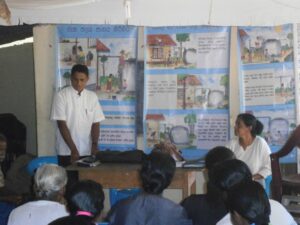 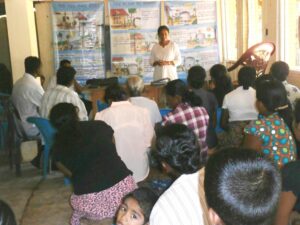 |

